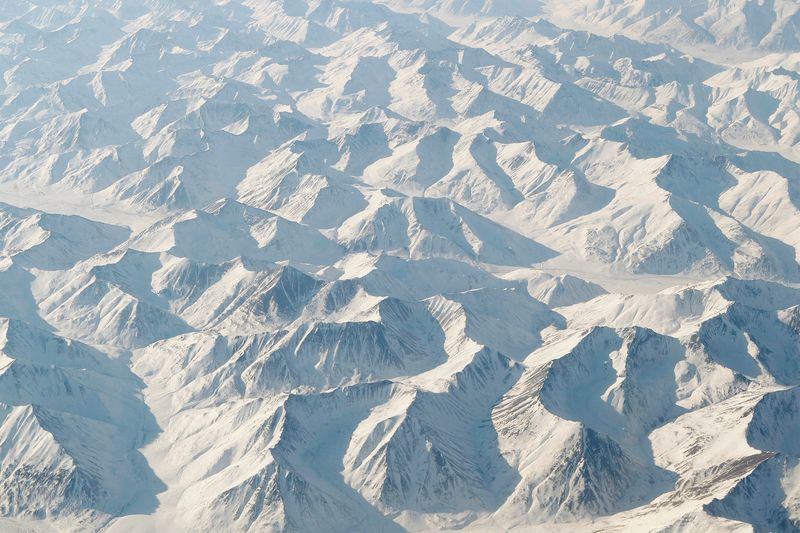By Nichola Groom
(Reuters) -The Biden administration took steps on Friday to limit both oil and gas drilling and mining in Alaska, angering state officials who said the restrictions will cost jobs and make the U.S. reliant on foreign resources, but pleasing environmentalists.
The measures are aligned with President Joe Biden's efforts to rein in oil and gas activities on public lands and conserve 30% of U.S. lands and waters to combat climate change.
The Interior Department finalized a regulation to block oil and gas development on 40% of Alaska's National Petroleum Preserve to protect habitats for polar bears, caribou and other wildlife and the way of life of indigenous communities.
The agency also said it would reject a proposal by a state agency to construct a 211-mile (340-km) road intended to enable mine development in the Ambler Mining District in north central Alaska.
The agency cited risks to caribou and fish populations that dozens of native communities rely on for subsistence.
"I am proud that my Administration is taking action to conserve more than 13 million acres in the Western Arctic and to honor the culture, history, and enduring wisdom of Alaska Natives who have lived on and stewarded these lands since time immemorial," Biden said in a statement.
The NPR-A, as it is known, is a 23 million-acre (93 million hectare) area on the state's North Slope that is the largest tract of undisturbed public land in the United States. The new rule would prohibit oil and gas leasing on 10.6 million acres (4.3 million hectares) while limiting development on more than 2 million additional acres (809,000 hectares).
The rule would not affect existing oil and gas operations, including ConocoPhillips (NYSE:COP)' $8 billion Willow project, which the Biden administration approved last year.
Currently, oil and gas leases cover about 2.5 million acres (1 million hectares).
Alaska's native population is split on oil and gas development, and some groups strongly opposed the administration's decision, saying taxes on the industry help support schools and infrastructure in their communities.
"The final NPR-A rule will hurt the very residents the federal government purports to help by rolling back years of progress, impoverishing our communities, and imperiling our Iñupiaq culture," Voice of the Arctic Inupiat President Nagruk Harcharek said in a statement.
The Ambler Access Project, proposed by the Alaska Industrial and Development Export Authority, would enable mine development in an area with copper, zinc and lead deposits and create jobs, the authority has said.
Interior's Bureau of Land Management released its environmental analysis of the project on Friday, recommending "no action" as its preferred alternative. The project now faces a final decision by the Interior Department.
Ambler Metals, a company seeking to develop the region, said it would not give up.
"We remain committed to this important project and will continue to push forward using all possible avenues," Kaleb Froelich, the company's managing director, said in a statement.
Republican senators from Alaska and several other states held a press conference on Thursday to slam the administration's widely anticipated decisions.
"When you take off access to our resources, when you say you cannot drill, you cannot produce, you cannot explore, you cannot move it -- this is the energy insecurity that we're talking about," Senator Lisa Murkowski said. "We're still going to need the germanium, the gallium, the copper. We're still going to need the oil. But we're just not going to get it from Alaska."

Environmentalists, an important part of Biden's base ahead of the Nov. 5 U.S. elections, praised the moves for protecting habitats and cultural resources at a time of change in the region.
"As the Arctic undergoes dramatic climatic changes, this new rule (on NPR-A) is absolutely necessary to protect birds, caribou, and fish,” said David Krause, interim executive director at Audubon Alaska.